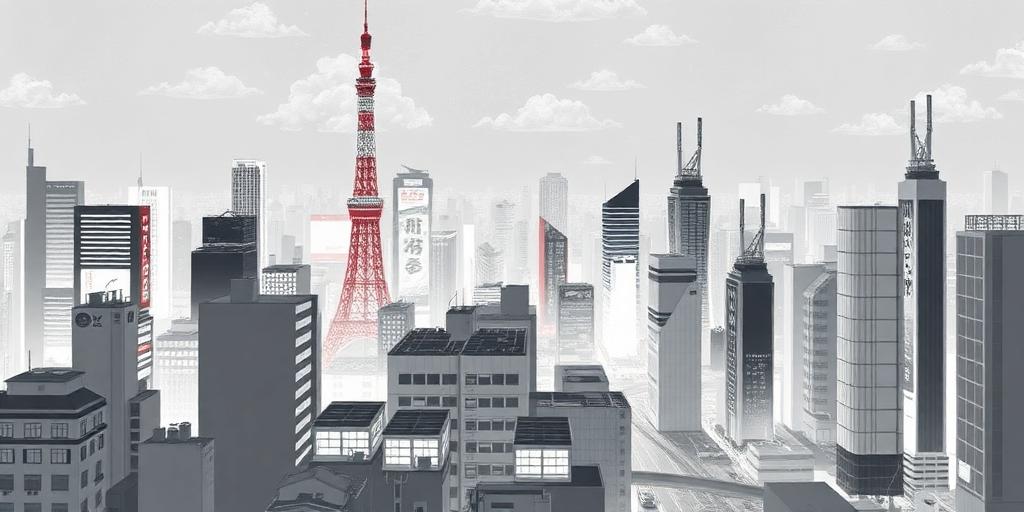Japan's Lost Decades: The Lingering Psychological Hangover of an Asset Price Bubble
The term "Lost Decades" refers to a period of economic stagnation in Japan following the collapse of its asset price bubble in the early 1990s. While various economic factors contributed to this prolonged slump, the psychological impact on Japanese society cannot be overlooked. This post delves into the psychological dimensions of Japan's Lost Decades, exploring how the bursting of the bubble affected individual behavior, corporate strategies, and overall national sentiment.
The Bubble Economy: A Euphoric High
In the late 1980s, Japan experienced an unprecedented economic boom. Asset prices, particularly real estate and stocks, soared to astronomical levels. This "bubble economy" created a sense of euphoria and boundless optimism. Companies invested aggressively, individuals splurged on luxury goods, and the prevailing belief was that Japan's economic ascent was unstoppable. This environment fostered:
- Irrational Exuberance: Investors, caught up in the frenzy, made increasingly risky decisions based on speculation rather than fundamentals.
- Moral Hazard: Banks, confident in ever-rising asset values, extended loans with little regard for creditworthiness.
- Consumption Binge: The "bubble mentality" fueled extravagant spending habits, creating a culture of conspicuous consumption.
The Burst: A Collective Trauma
The bubble burst in the early 1990s, triggering a sharp decline in asset prices. The consequences were devastating:
- Balance Sheet Recession: Companies and individuals were saddled with massive debt as the value of their assets plummeted. This led to a reluctance to invest or spend, creating a self-reinforcing cycle of economic contraction.
- Deflationary Mindset: As prices fell, consumers delayed purchases in anticipation of further declines, exacerbating deflation.
- Erosion of Confidence: The sudden reversal of fortunes shattered the prevailing optimism and created a sense of uncertainty and anxiety.
Psychological Impacts and Behavioral Shifts
The psychological scars of the Lost Decades ran deep, influencing behavior in several key ways:
- Risk Aversion: Individuals and companies became extremely risk-averse, preferring to hoard cash rather than invest in new ventures. This "hollowing out" of investment hampered innovation and economic growth.
- Loss of Animal Spirits: The entrepreneurial drive and dynamism that had characterized Japan's postwar economic miracle waned, replaced by a sense of caution and resignation.
- Increased Job Insecurity: Companies, struggling with debt and declining profits, cut costs by reducing employee benefits and shifting towards precarious employment. This led to increased job insecurity and a decline in worker morale.
- Rise of "Hikikomori" and Social Withdrawal: Some individuals, particularly young people, became disillusioned with society and withdrew from social life, becoming "hikikomori" (social recluses).
Corporate Strategies: From Expansion to Survival
The bubble's collapse forced Japanese companies to drastically alter their strategies:
- Debt Reduction: Companies prioritized paying down debt over investment and growth.
- Restructuring and Downsizing: Many firms underwent painful restructuring processes, shedding unprofitable businesses and laying off workers.
- Focus on Efficiency: Companies emphasized cost-cutting and efficiency improvements to survive in a deflationary environment.
- Overseas Expansion: Some firms sought growth opportunities in overseas markets, leading to increased foreign direct investment.
National Sentiment: From Optimism to Uncertainty
The Lost Decades had a profound impact on national sentiment:
- Decline in National Pride: The economic slump eroded Japan's sense of national pride and confidence.
- Increased Pessimism: Public opinion surveys revealed a growing sense of pessimism about the future.
- Generational Divide: A generational divide emerged, with younger generations expressing less faith in traditional institutions and values.
- Search for New Identity: Japan grappled with its identity in a rapidly changing global landscape, seeking to redefine its role in the 21st century.
Lingering Effects and Lessons Learned
Even decades after the bubble's collapse, the psychological effects continue to shape Japan's economic and social landscape. The experience has taught valuable lessons about the dangers of speculative bubbles, the importance of prudent risk management, and the need for resilience in the face of economic adversity. Understanding the psychological dimensions of Japan's Lost Decades is crucial for policymakers and business leaders seeking to revitalize the Japanese economy and restore confidence in its future.









